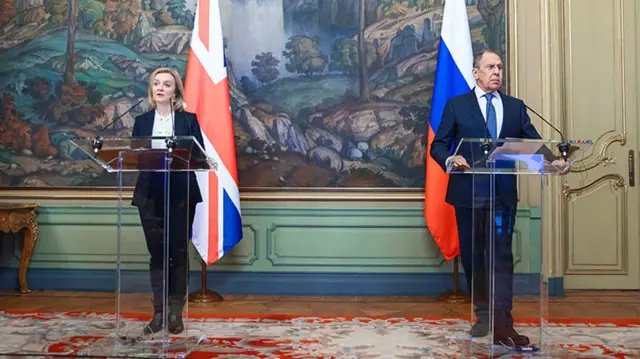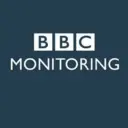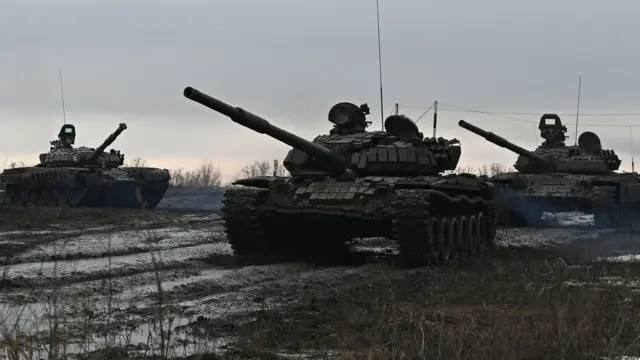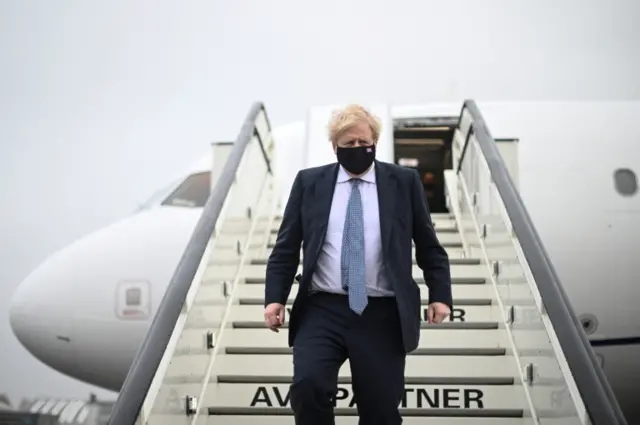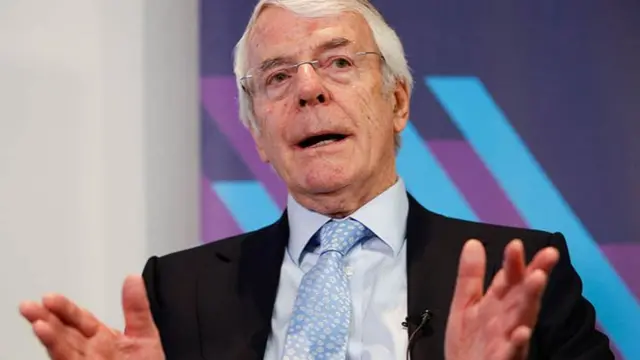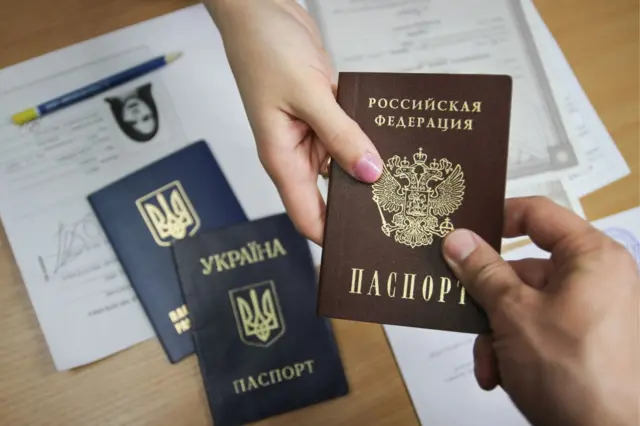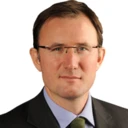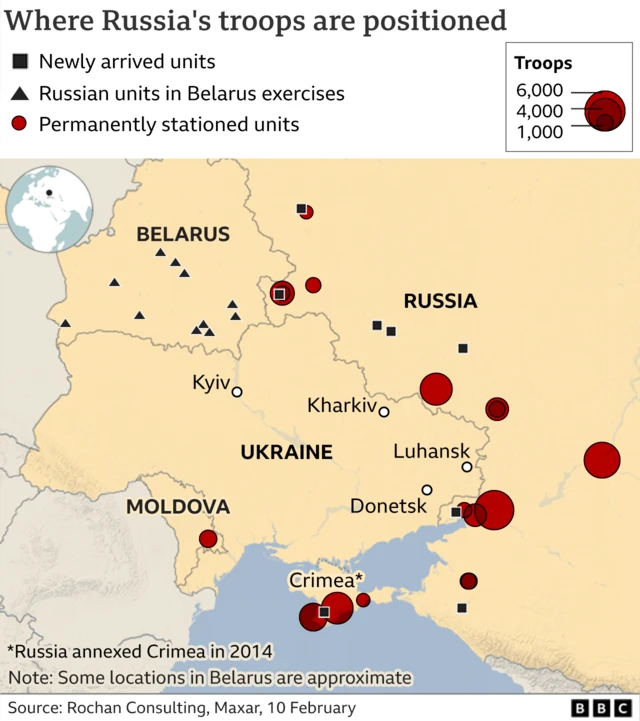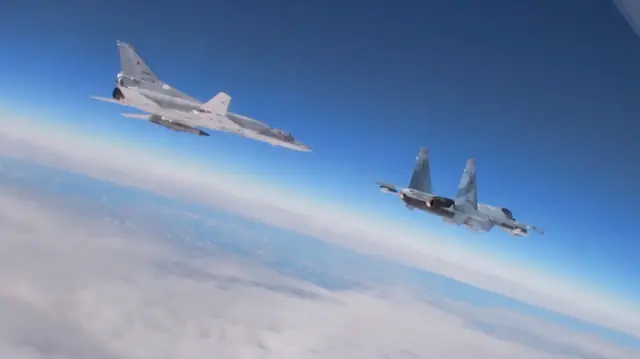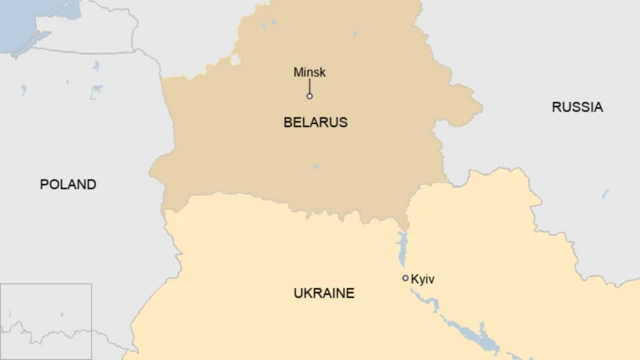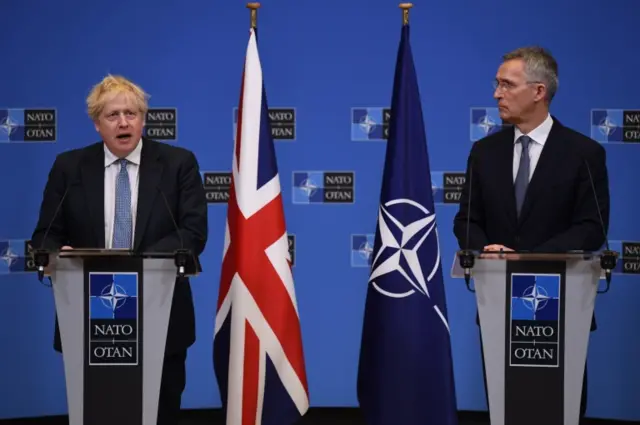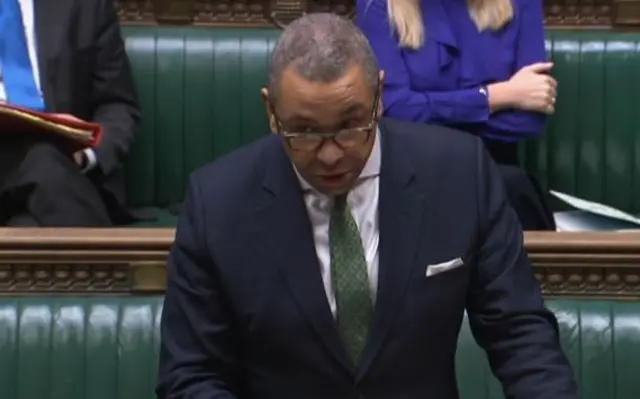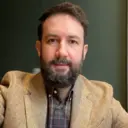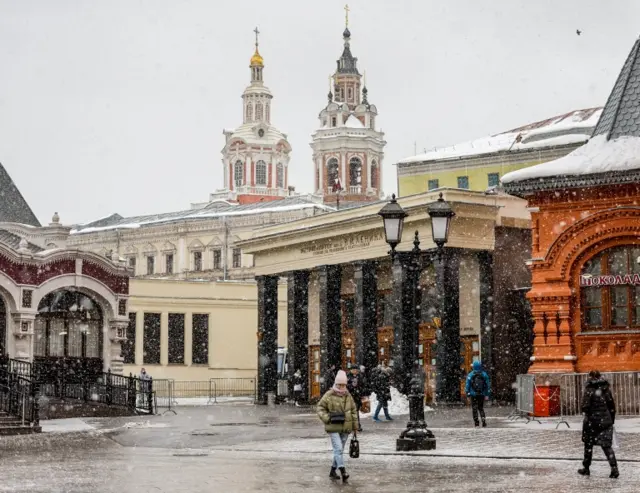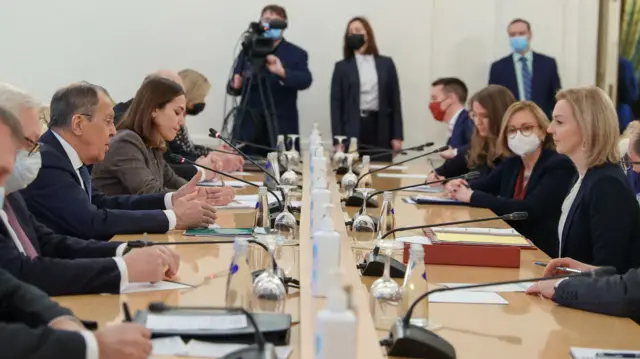If Poland is threatened, we are all threatened - PMpublished at 14:05 GMT 10 February 2022
Boris Johnson then takes his turn to speak. He says that when "Poland is threatened, we are all threatened".
That's why, he says, 350 more British troops have touched down in Poland to stand "shoulder to shoulder" with their Polish counterparts.
"We need to work together now to achieve de-escalation," he says.
Johnson says it is important to remember why "we are doing this" and putting together a package of sanctions.
"We won't accept a world in which a powerful neighbour can bully or attack their neighbours," he adds.
He finishes by saying that it is more than 80 years since Polish pilots came to his constituency of Uxbridge and West Ruislip to help in the fight for our freedom - referring to World War Two.
"We stood side by side to uphold our values and principles then, and we stand side by side today," he concludes.
